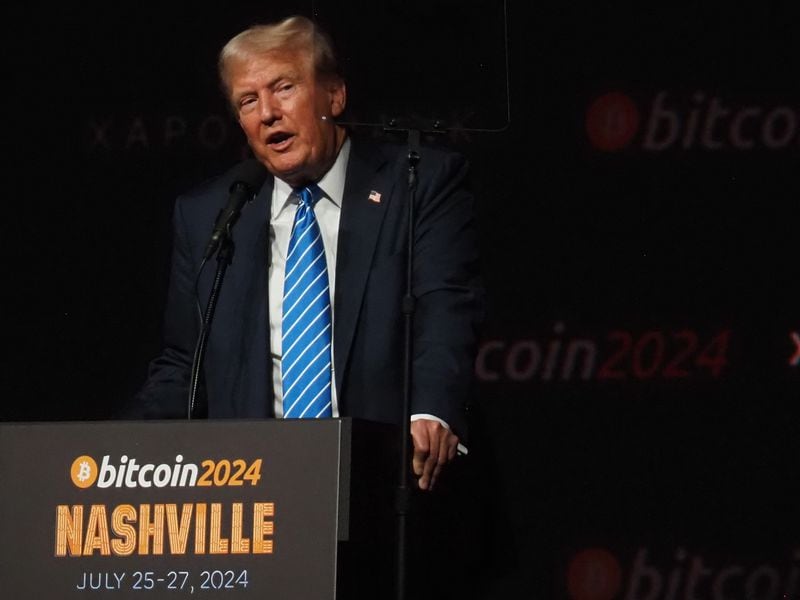House Financial Services Committee Votes in Favor of Crypto, Blockchain Bills
The House Financial Services Committee advanced a set of crypto bills after a landmark markup on Wednesday.
Though the fallout from crypto exchange FTX loomed large over lawmakers as they worked toward ironing out the details of bills designed to provide a unified legal framework for crypto and address blockchain-related issues, a majority of lawmakers ultimately voted in favor of H.R. 4763, the Financial Innovation and Technology for the 21st Century Act and H.R. 1747, the Blockchain Regulatory Certainty Act after a day-long markup session, referring both bills to the full House of Representatives for a vote.
During Wednesday’s markup, a large swath of committee members – both Republicans and Democrats – refused to support the proposed market structure bill, criticizing a clause in the bill that would allocate more power to the Commodity Futures Trading Commission (CFTC). They also expressed concerns about whether the bill would weaken consumer protections enshrined by the U.S.’ decades-old securities laws and ultimately leave U.S. investors with fewer protections against fraud.
Nevertheless, the committee’s chair, Rep. Patrick McHenry (R-N.C.), praised the legislation during his opening comments, noting it was the first time a committee was marking up crypto-specific legislation and affirming that legislation is necessary to prevent the U.S. from “falling behind” other countries in regulating crypto.
“Our comprehensive digital asset market structure legislation recognizes a key issue: digital assets that are not inherently securities may be offered as part of an investment contract but that does not make them securities,” he said during his comments.
The legislation’s critics said they were more concerned with the bill’s actual provisions.
“I’ve been on this committee for 20 years and I can say unequivocally that this is the worst piece of legislation that has been presented for markup in that 20 years,” Rep. Stephen Lynch (D-Mass.) told the committee.
Democrats took umbrage at the fact that the proposed law would grant the CFTC more authority to regulate the digital assets space without increasing the agency’s funding.
The CFTC has earned a reputation for being softer on crypto companies than the Securities and Exchange Commission (SEC), something Democrats have said could enable future fraud. FTX founder Sam Bankman-Fried and other crypto industry bigwigs previously petitioned for the regulator to be granted more power to regulate the space.
However, Republicans supporting the bill argued that an additional $120 million in funding that was recently approved by the Agriculture Committee will vest the CFTC with the resources to do its job more thoroughly.
Republicans also urged their fellow lawmakers not to hold up the bill and praised the potential clarity it could bring to the crypto industry.
The crypto framework, they said, will temper what they described as the SEC’s brutal crackdown on the digital assets industry, incentivizing companies to remain in the U.S. rather than migrate to more crypto-friendly jurisdictions.
“If Congress does nothing, the United States will miss a huge opportunity and Americans will suffer for it,” Rep. Tom Emmer (R-Minn.), who is also the majority whip, said.
The House Agriculture Committee will start its own markup of the Financial Innovation and Technology for the 21st Century Act on Thursday, while the Financial Services Committee marks up stablecoin legislation.
The House committee votes came as the Senate added anti-money laundering provisions for the crypto industry to a must-pass defense bill.
The National Defense Authorization Act now includes an amendment from Senators Cynthia Lummis (R-Wyo.), Kirsten Gillibrand (D-N.Y.), Elizabeth Warren (D-Mass.) and Roger Marshall (R-Kansas) that would require the Treasury Department, Conference of State Bank Supervisors and other regulators to create “a risk-focused examination and review process for financial institutions” to assess certain crypto-related risks.
They include whether reporting obligations under current anti-money laundering programs are adequate and whether these institutions are complying with the law.
The amendment will also require the Treasury Department to create a report analyzing the role of mixers and “privacy-enhancing technologies or services used in connection with crypto assets,” as well as provide any recommendations for legislation that is needed to address any concerns.
Brett Quick, the head of government affairs at the Crypto Council for Innovation, told CoinDesk that the industry organization “appreciates the efforts of policymakers to tackle the important questions surrounding crypto and [Bank Secrecy Act]/AML compliance.”
“The amendment offered to NDAA by Senators Lummis, Gillibrand, Warren, and Marshall is a thoughtful approach, however, we continue to seek needed regulatory clarity on which projects, tokens, and activity are overseen by which agencies,” she said through a spokesperson.
Edited by Rosie Perper.








